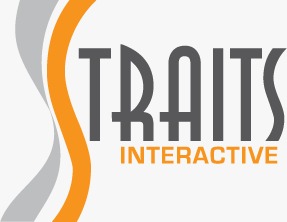GRC Professional Training
- Innovation & Business Improvement
This module is conducted in-person.
To use your SkillsFuture Credit, please submit your claim through our payment portal. Do not submit the claim manually via the SkillsFuture page. Please refer to our step-by-step guide here.
3 days; 9am to 6pm
Who Should Attend
Heads of Departments/ Functions with GRC roles (audit, risk, and compliance), as well as professionals handling Governance, Risk and Compliance for different departments, e.g., Finance, Human Resources, IT, Operations, etc.
Prerequisites:
Participants should have:
- basic GRC knowledge and experience; and
- tertiary level qualifications; and/or
- at least 2 years of working experience
Overview
The GRCP training course provides participants with the core understanding of GRC processes and capabilities, and the skills to integrate governance, performance management, risk management, internal control, and compliance activities. It gives assurance that the Compliance Professional has core knowledge, skills and understanding of managing and advising on risk, internal controls, key compliance matters and functions compliance, and how these must be integrated for effective and appropriate governance.
On this course, participants will be prepared for the OCEG GRC examination. Participants who wish to pursue the certification may sit for the examination offered separately by OCEG after this training course. Examination voucher can be purchased at a special rate from our training partner Straits Interactive. More details about the examination voucher will be shared on the last day of the course.
The GRCP training course covers the following topics:
- Introduction
- Introduction to OCEG
- The use of frameworks
- Available GRC individual certifications
- Business context and the need for a GRC approach and Principled Performance
- The "Big" picture of business illustration
- Defining Principled Performance
- Advantages of Principled Performance
- Governance, Risk Management and Compliance Basics Module
- Defining common GRC terms
- GRC Concepts
- GRC roles and responsibilities (e.g. audit, legal, human resources, IT, compliance, risk management, ethics, the boards etc.)
- Gaining commitment from senior management and the board
- Overview of the OCEG GRC Capability Model
- Implementing the OCEG GRC Capability Model at an organisation
- Learn Component
- Understanding the external context of your organisation
- Understanding the internal context of your organisation
- Understanding and assessing culture
- Understanding relevant stakeholders and developing a stakeholder relations plan
- Align Component
- Setting direction and management decision-making criteria in accordance with mission, vision and values
- Defining high-level and lower-level objectives
- Identifying opportunities, threats and requirements for your organisation
- Assessing levels of reward, risk and compliance - inherent and residual basis
- Designing relevant options and controls in order to respond to levels of reward, risk and compliance
- Perform Component
- Determining the right mix of proactive, detective, and responsive internal controls
- Developing relevant policies and procedures
- Providing communication to the right people, in the right way, at the right time
- Delivering education to relevant individuals
- Designing and implementing appropriate incentives
- Designing notification methods to detect desired and undesirable events
- Designing inquiry methods to detect desired and undesirable events
- Responding to desired and undesirable events
- Review Component
- Monitoring the GRC capability
- Providing assurance on the GRC capability
- Making improvements to the GRC capability
- GRC Strategy
- Elements of a GRC strategic plan
- Completing risk and compliance assessments as a starting point - Fraud risk assessment, Organisational risk assessment, Compliance gap analysis
- Moving from the current state to desired state
- Degrees of integration and maturity models
- Building and explaining the business case for integrated GRC
- GRC Professional Exam Preparation Module
- GRCP exam areas
- Exam resources
- Sample GRCP exam questions and answers

Learning Objectives
At the end of the 3-day course, participants will be able to:
- Develop a GRC strategic plan
- Align governance, risk and compliance in context of the organisation
- Understand, define, and enhance organisational culture as it relates to performance, risk, and compliance
- Implement effective, efficient and agile GRC processes using the OCEG GRC Capability Model
- Motivate and inspire desired conduct through the concept of Principled Performance
- Understand technology’s role in GRC
- Develop ongoing monitoring and continuous improvement of GRC activities through metrics and measurement
- Explain the value of Principled Performance, and an integrated approach to GRC, to your management and board
Assessment
As part of the requirement for SkillsFuture Singapore, there will be an assessment conducted at the end of the course. The mode of assessment, which is up to the trainer’s discretion, may be an online quiz, a presentation or based on classroom exercises.
Participants are required to attain a minimum of 75% attendance and pass the associated assessment in order to receive a digital Certificate of Participation issued by Singapore Management University.
Calculate Programme Fee
Fee Table
| EMPLOYER-SPONSORED | |||
|
PARTICIPANT PROFILE |
SELF-SPONSORED |
SME |
NON-SME |
|
Singapore Citizen < 40 years old Permanent Resident LTVP+
|
$1,177.20 (After SSG Funding 70%) |
$457.20 (After SSG Funding 70% |
$1,177.20 (After SSG Funding 70%) |
|
Singapore Citizen ≥ 40 years old |
$457.20 (After SSG Funding 70% |
$457.20 (After SSG Funding 70% |
$457.20 (After SSG Funding 70% |
|
International Participant |
$3,924 (No Funding) |
$3,924 (No Funding) |
$3,924 (No Funding) |
All prices include 9% GST
Please note that the programme fees are subject to change without prior notice.
SkillsFuture Level-Up Programme for Mid-Career Individuals
A SkillsFuture Credit (Mid-Career) top-up of $4,000 will be provided to Singaporeans aged 40 years and above to further offset out-of-pocket course fees for this programme.
Post Secondary Education Account (PSEA)
PSEA can be utilised for subsidised programmes eligible for SkillsFuture Credit support. Click here to find out more.
Self Sponsored
SkillsFuture Credit
Singapore Citizens aged 25 and above may use their SkillsFuture Credits to pay for the course fees. The credits may be used on top of existing course fee funding.
This is only applicable to self-sponsored participants. Application to utilise SkillsFuture Credits can be submitted when making payment for the course via the SMU Academy TMS Portal, and can only be made within 60 days of course start date.
Please click here for more information on the SkillsFuture Credit. For help in submitting an SFC claim, you may wish to refer to our step-by-step guide on claiming SkillsFuture Credits (Individual).Workfare Skills Support Scheme
From 1 July 2023, the Workfare Skills Support (WSS) scheme has been enhanced. Please click here for more details.
Employer Sponsored
Enhanced Training Support for SMEs (ETSS)
- Organisation must be registered or incorporated in Singapore
- Employment size of not more than 200 or with annual sales turnover of not more than $100 million
- Trainees must be hired in accordance with the Employment Act and fully sponsored by their employers for the course
- Trainees must be Singapore Citizens or Singapore Permanent Residents
- Trainees must not be a full-time national serviceman
- Trainees are eligible for ETSS funding only if their company's SME status is approved prior to the course commencement date. To verify your SME's status, please click here.
Please click here for more information on ETSS.
Absentee Payroll
Employers who sponsor their employees for the course may apply for Absentee Payroll here. For more information, please refer to:
AP Guide (Non-SME Companies)
Declaration Guide (SME Companies)
Loading schedule information...







